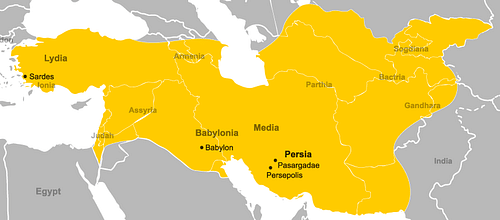It’s interesting that naysayers of the Biblical prophecies almost always point out seeming discrepancies within these prophecies, or at least what seems to be, but with other prophecies where they can’t find inaccuracies, they almost always say, “Well, these were written after the fact.”
Basically, this amounts to accusations of deliberate fraud perpetrated by these ancient Israelite/Jewish authors.
But if that were so, these ancient Biblical books would not have been held in such respect and esteem by their ancient contemporaries, who would’ve known the truth, and future generations as they have... these books would have been severely censured as fraudulent.
But this so-called “Higher criticism“ has only occurred within the last 200 years or so.
If Isaiah, Jeremiah and others had been written “after the fact,” why would they have spent so much effort in writing many pages & begging the Israelites/Jews to turn around & repent so that such discipline / punishment not come upon them from Assyria, Babylon, etc....if the events had already happened?
What motive could there possibly be from these writers? It certainly wasn’t money.
And these Israelite/Jewish authors as individuals weren’t doing it to promote Jehovah to the world....they were happy with their own tribes & way of life, known to avoid interaction with other nations.
The authors of these Biblical prophecies, if writing solely to mislead, would’ve had some pretty dark motives for such a clandestine effort!
Of course, many of us are aware of the motives of a few Biblical detractors: the Bible sets forth some guidelines that “interfered with our sexual freedom,” as Aldous Huxley stated in “Ends and Means” & a lot of people don’t want to follow these guidelines, and others set forth in Scripture.
I would suggest that in the interests of accuracy, detractors should re-examine their own motives, and apply some critical thinking and reasoning to what is assumed, and what is actually known.
Examining the writings of Sir Frederic G. Kenyon, would be a fine start.
@Bree , good thread. I leave it with you, my sister.
Basically, this amounts to accusations of deliberate fraud perpetrated by these ancient Israelite/Jewish authors.
But if that were so, these ancient Biblical books would not have been held in such respect and esteem by their ancient contemporaries, who would’ve known the truth, and future generations as they have... these books would have been severely censured as fraudulent.
But this so-called “Higher criticism“ has only occurred within the last 200 years or so.
If Isaiah, Jeremiah and others had been written “after the fact,” why would they have spent so much effort in writing many pages & begging the Israelites/Jews to turn around & repent so that such discipline / punishment not come upon them from Assyria, Babylon, etc....if the events had already happened?
What motive could there possibly be from these writers? It certainly wasn’t money.
And these Israelite/Jewish authors as individuals weren’t doing it to promote Jehovah to the world....they were happy with their own tribes & way of life, known to avoid interaction with other nations.
The authors of these Biblical prophecies, if writing solely to mislead, would’ve had some pretty dark motives for such a clandestine effort!
Of course, many of us are aware of the motives of a few Biblical detractors: the Bible sets forth some guidelines that “interfered with our sexual freedom,” as Aldous Huxley stated in “Ends and Means” & a lot of people don’t want to follow these guidelines, and others set forth in Scripture.
I would suggest that in the interests of accuracy, detractors should re-examine their own motives, and apply some critical thinking and reasoning to what is assumed, and what is actually known.
Examining the writings of Sir Frederic G. Kenyon, would be a fine start.
@Bree , good thread. I leave it with you, my sister.

